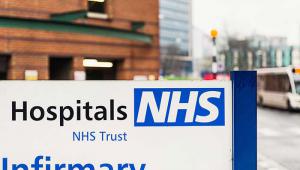In the department's annual report and accounts for the period up to March 31 2017, published yesterday, it revealed an improvement on a “difficult” year in 2015/16 - when it had overspent.
DoH’s capital spending dropped for the third consecutive in 2016/17. Last financial year the Capital Departmental Expenditure Limit (CDEL) was £4.62bn but only £4.56bn was spent - resulting in a underspend of £60m.

Source: Department of Health annual accounts report
The report – done jointly with the National Audit Office - stated after 2015/16 the department instilled a new approach of “financial rigour”, which resulted in an “overall return to financial balance” in 2016/17.
This improved financial discipline, which the health and care system will need to adhere to over the coming years, the report authors noted.
But Amyas Morse, head of the NAO, stated in the document: “The department is still some way from achieving financial sustainability and many key performance targets have not been achieved."
He recognised it had overseen some overall improvement in the financial position of the healthcare system in 2016-17.
Although he warned: "This improvement is focused on sustaining the system rather than transformation.”
Morse added that the government “has more to do” to secure the healthcare system’s sustainability.
Chris Wormald, permanent secretary of the Department of Health, in the report wrote: "[The last financial year] has seen the Department of Health undergo significant change and although there is still more to do, we have made good progress towards our vision for the department’s future.
“We have enhanced our role as a department of state, reviewing our role and purpose and ways of working to ensure we have the correct skills to lead the health and care system effectively.”
The Health Foundation charity said the improved financial balance had “come at a price”.
Anita Charlesworth, director of research and economics at the Health Foundation, said: “£1.2bn was transferred from the capital budget to meet day to day running costs, and capital spending in the NHS has fallen by more than 20% in real terms over the last three years.
"Without access to sufficient capital funding the NHS now has an estimated £5bn backlog maintenance bill.”
The Health Foundation said funding per patient is likely to keep falling, which will make it difficult for the government to keep its commitments to improve and transform primary and mental health in the UK.
It will also noted spending on GP services fell as a share of the health budget and the number of GPs working in the NHS declined.











